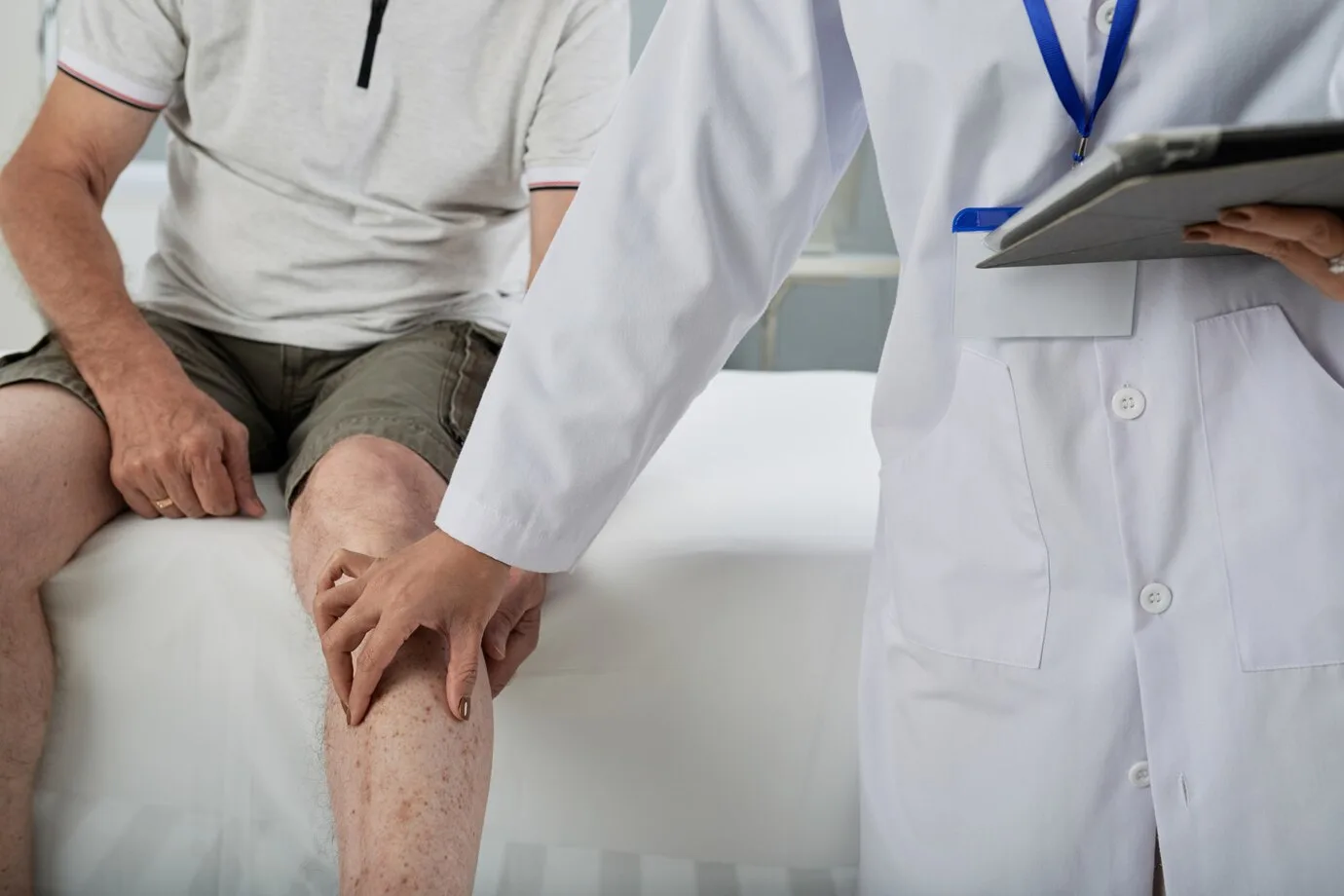What To Expect Before, During, And After Knee Replacement Surgery
Category: Orthopedics
Knee replacement surgery, also known as knee arthroplasty, is a common and effective procedure for those suffering from severe knee pain and limited mobility due to conditions like osteoarthritis or injury. At Lokmanya Hospitals, we understand that undergoing surgery can feel daunting, which is why we prioritize patient education and support throughout the process. This blog outlines what you can expect before, during, and after knee replacement surgery, helping you prepare for a smoother journey to recovery.
Before the Surgery: Preparing for Success
1. Pre-Surgical Assessment: Your journey begins with a thorough evaluation. This includes a detailed discussion of your medical history, a physical examination, imaging tests such as X-rays or MRIs, and routine lab work. This step ensures you’re a suitable candidate for knee replacement and helps your healthcare team develop a personalized surgical plan.
2. Lifestyle Adjustments: You may need to make certain lifestyle changes leading up to surgery. This includes:
- Dietary modifications to maintain a healthy weight and improve healing potential.
- Physical therapy exercises to strengthen the muscles around your knee.
- Medication adjustments as advised by your doctor, particularly if you’re on blood thinners or medications for chronic conditions.
3. Home Preparation: Preparing your home can enhance post-surgery recovery. Key considerations include:
- Removing tripping hazards like rugs and clutter.
- Setting up a comfortable resting area with easy access to essentials.
- Installing safety aids such as grab bars and elevated toilet seats.
During the Surgery: A Step-by-Step Overview
Knee replacement surgery typically takes 1-2 hours and involves replacing the damaged joint surfaces with artificial implants. Here’s a simplified breakdown:
1. Anesthesia: You’ll receive either general anesthesia (you’re fully asleep) or regional anesthesia (you’re awake but numb below the waist). Your surgeon and anesthesiologist will discuss the best option for you.
2. Surgical Procedure:
- The surgeon makes an incision to access the knee joint.
- Damaged bone and cartilage are removed.
- The artificial joint components (made of metal, plastic, or ceramic) are securely implanted.
- The incision is carefully closed, and a sterile dressing is applied.
3. Post-Surgery Monitoring: After surgery, you’ll be moved to a recovery room where your vital signs are monitored. Pain management begins immediately, and you may start gentle movements to prevent stiffness.
After the Surgery: The Road to Recovery
1. Hospital Stay: Most patients stay in the hospital for 2-3 days. During this time:
- You’ll receive pain medications and antibiotics to prevent infection.
- Physical therapy sessions will begin to help you regain mobility.
- Your healthcare team will monitor your progress and address any concerns.
2. Rehabilitation at Home: Recovery continues at home with a tailored rehabilitation plan. This may include:
- Physical therapy: Regular exercises to improve strength, flexibility, and balance.
- Follow-up appointments: To ensure your knee is healing as expected.
- Wound care: Keeping the surgical site clean and dry to avoid infections.
3. Long-Term Outcomes: Full recovery can take 6-12 months. Most patients experience significant pain relief and improved mobility, enabling them to resume daily activities and even enjoy hobbies like walking or swimming.
Why Choose Lokmanya Hospitals for Knee Replacement Surgery?
At Lokmanya Hospitals, we are committed to providing comprehensive care through every phase of your knee replacement journey. Our state-of-the-art facilities, experienced surgeons, and dedicated rehabilitation team work together to deliver exceptional outcomes. We also emphasize patient education and personalized care to ensure a confident and comfortable experience.
Conclusion
Knee replacement surgery is a transformative step toward reclaiming mobility and improving quality of life. By understanding what to expect before, during, and after the procedure, you can approach it with confidence and a clear plan for recovery. Lokmanya Hospitals is committed to providing expert care, advanced surgical techniques, and personalized support at every stage of your journey. Trust us to guide you toward a pain-free, active lifestyle.
FAQs
1. How long does a knee replacement surgery take?
Typically, the procedure takes about 1 to 2 hours. However, preparation and post-operative monitoring may extend your time in the hospital.
2. How soon can I walk after surgery?
Most patients can start walking with assistance on the same or next day after surgery. Physical therapy will help improve mobility over time.
3. Are there risks associated with knee replacement surgery?
As with any surgery, there are risks such as infection, blood clots, or implant issues. Choosing a trusted facility like Lokmanya Hospitals minimizes these risks with expert care and advanced technology.
4. How long does it take to recover fully?
Recovery varies by individual, but most patients can resume normal activities within 6 to 12 weeks. Full recovery may take several months.
5. Will the new knee feel completely natural?
While the prosthetic knee may not feel exactly like your natural knee, most patients experience significant pain relief and improved function.
6. How do I know if I’m a candidate for knee replacement surgery?
You may be a candidate if you experience severe knee pain, stiffness, or reduced mobility that doesn’t respond to conservative treatments. A consultation with a specialist at Lokmanya Hospitals can help determine the best course of action.








